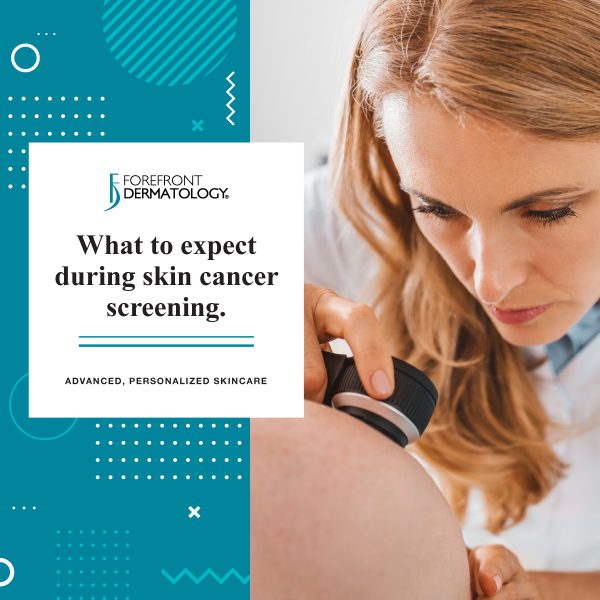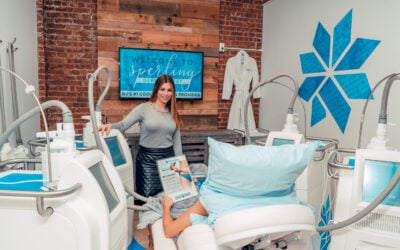
Find it. Treat it. Beat it.
A simple statement, but the meaning behind it is strong. Each year there are more new cases of skin cancer than combined cases of breast, prostate, lung and colon cancer. Early diagnosis through a skin cancer screening can be the difference between life and death. According to American Cancer Society research, if melanoma is caught in stage one, the 5 year survival rate is 97%. Late detection survival rates can be as low at 15%. The best way to detect skin cancer early on is by getting an annual full body skin cancer screening.
Are you curious what to expect during a full body skin cancer screening? Not knowing what happens in a skin screening can be a bit unnerving to a first timer, but let us explain.
A typical full body skin cancer screening is a simple 10 minute appointment where a dermatologist examines your body and looks for any areas of concern. It starts with you changing into a hospital-style gown. When the dermatologist enters you will first discuss any areas of concern you may have. According to Dr. Michelle Cihla, board-certified dermatologist with Forefront Dermatology, “It is important to point out any areas you have noticed changing. Remember, you know your skin the best because you see it every day and notice the new or evolving moles.” The doctor will examine each part of your skin, and may use a special magnifying glass with a light—called a dermatoscope—to examine certain suspicious spots. If a suspicious lesion is identified, you may need a biopsy. If a biopsy is needed your appointment may extend past 10 minutes. Results are usually not given during that appointment but instead sent to a pathology lab where it is examined. Common timeframe for results can be 5 to 10 days. Your dermatologist’s nurse will contact you with the results. If further treatment is needed they will schedule your next appointment at that time.
Be Proactive
Remember, early detection saves lives and a simple, yearly in-office skin screening with your local board-certified Forefront Dermatologist can truly mean the difference between life and death. Find a dermatologist near you today.





